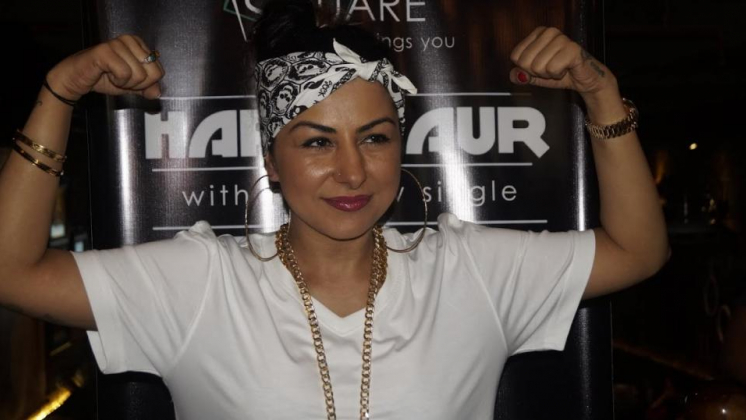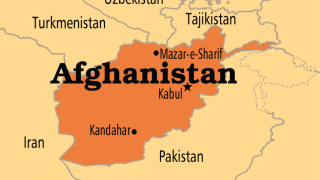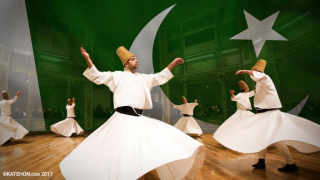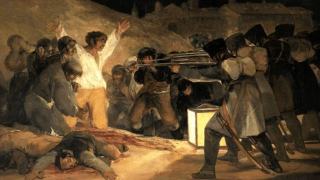Rapper Hard Kaur's Political Commentary About India Returns Rap To Its Roots
Rap originally began as socio-political commentary by disaffected minorities, so it's fitting that rapper Hard Kaur would return to the genre's roots with her anti-Hindutva and pro-Khalistan comments, though it's precisely because of the impact that her words could have that her Indian homeland is trying in vain to intimidate her into shutting up.
Hard Kaur vs. Hindutva
One doesn't have to be a fan of rap music to appreciate its roots in serving as an outlet for disaffected minorities to voice their socio-political commentary. The genre has radically changed in the ensuing decades so it's refreshing to see that one rapper is going back to the basics and using her popularity to raise awareness about some serious issues back in her homeland. Taran Kaur Dhillon, based in the UK and better known as Hard Kaur, made global headlines last month when her anti-Hindutva comments against the head of the "Rashtriya Swayamsevak Sangh" (RSS) and the Chief Minister of Uttar Pradesh got her booked on sedition charges. She said that the Mohan Bhagwat is responsible for all terrorist attacks, decried the discriminatory caste system that's still practiced in India to this day, and nicknamed Yogi Adityanath "Orange Rapeman". While her words might be controversial to some, the scandal would have probably blown over in a day or two and only remained in the tabloids had her homeland's government not pursued charges against her.
An Unexpected Icon
By doing so, they immediately guaranteed that the whole world would become aware of the RSS's notorious past, India's reprehensible state of social affairs, and one of Modi's most polarizing Chief Ministers. India also inadvertently generated immense sympathy for her by instantly making Hard Kaur an icon of free speech, social equality, and religious freedom. All of this should have been predictable in hindsight and probably was when New Delhi was weighing the pros and cons of filing charges against the outspoken rapper, but the government apparently thought that all of this was worth it in order to set the example that no prominent celebrity from their country dare air their criticisms without consequence. Practically all of Bollywood already parrots the authorities' narrative as it is, so as the saying goes, "the nail that stands up gets hammered down first". What they weren't expecting, however, was that Hard Kaur wouldn't give up and would instead utilize her newfound global renown as a political activist to raise worldwide awareness about the Referendum 2020 campaign.
india's Looming Anti-Sikh Crackdown
Organized by the Sikhs For Justice (SFJ), which have been aggressively smeared by India as a so-called "Pakistani-backed terrorist group", the planned plebiscite is a peaceful exercise of self-determination in line with the UN Charter and aims to show that Sikhs want Punjab to become the independent country of Khalistan. New Delhi is nervous that the democratic and decentralizing principles espoused in this religious minority's revolutionary 1973 Anandpur Sahib Resolution could become the core of an alternative vision to the nation's present Hindutva path, which is why they banned the SFJ and even pressured Twitter to block the account of its legal advisor Gurpatwant Singh Pannun last September. These comparatively "soft" attempts to suppress the Referendum 2020 campaign didn't succeed, which is why much more muscular measures are now being implemented such as granting eight states the authority to utilize the so-called "Unlawful Activities (Prevention) Act" (UAPA) to crack down on the country's Sikh community prior to the possible imposition of the feared "Armed Forces (Special Powers) Act" (AFSPA) in part or all of Punjab ahead of next year's vote.
A Nightmare Come True For New Delhi
India prefers that its anti-Sikh activities remain off the global radar, but among the non-Sikhs who might become aware of them, it wants others abroad to associate these actions with being part of what it calls an "anti-terrorist" campaign. It would be a nightmare come true for New Delhi if the truth was revealed, but that's precisely what's in the process of happening after the rest of the world began wondering what Khalistan is after Hard Kaur posted a video in support of Referendum 2020. The popular rapper isn't just listened to by Sikhs, but is known all throughout her homeland, the UK, and beyond, especially after becoming an icon after the Indian state began targeting her for her previous anti-Hindutva comments. Had they not done that, then few media outlets would have cared about her subsequent publicly expressed support of Khalistan, but now the cause has gone viral in what can only be described as blowback from the Indian government's major strategic miscalculation of trying to intimidate her into shutting up the first place.
Incorporating Gramsci Into The Khalistani Campaign
The early 20th-century Marxist theoretician Antonio Gramsci postulated that political change is greatly facilitated and ultimately upheld by cultural changes in society, which in this context is relevant because Hard Kaur's activism might represent a tipping point whereby the Khalistani cause finally breaks into the global mainstream. That's actually the reason why many governments fear the rise of politically inspired rappers who either use their musical medium or celebrity status as a vehicle for spreading awareness about the causes that they support. India probably took this into account when deliberating whether or not to charge her for her earlier anti-Hindutva comments, wrongly thinking that they could pressure the rapper into self-censoring her views. They totally failed in their operation, and now she's channeling the spirit of her genre by holding firm and fighting back against the powers that be who are oppressing her and the Sikh community. By returning rap to its socio-political roots, Hard Kaur is exposing the terrible truth about modern-day India and dismantling the Bollywood myths that most of the world was duped into believing about the country for decades.
DISCLAIMER: The author writes for this publication in a private capacity which is unrepresentative of anyone or any organization except for his own personal views. Nothing written by the author should ever be conflated with the editorial views or official positions of any other media outlet or institution.














